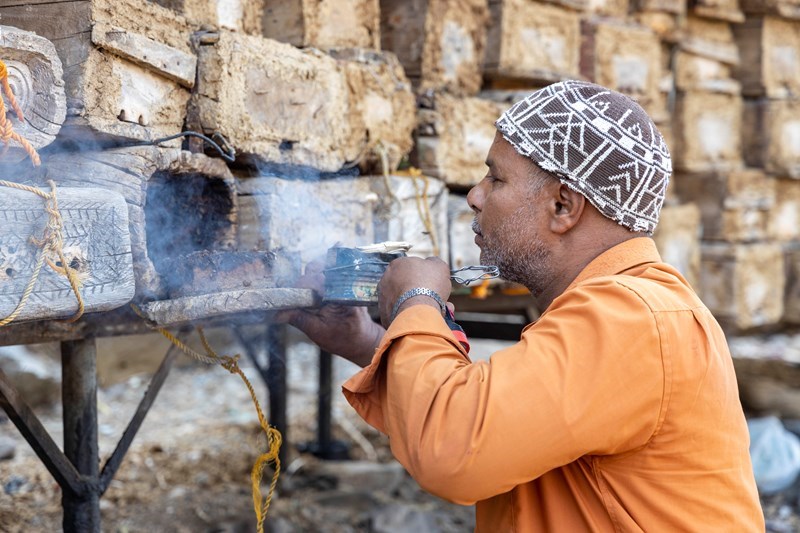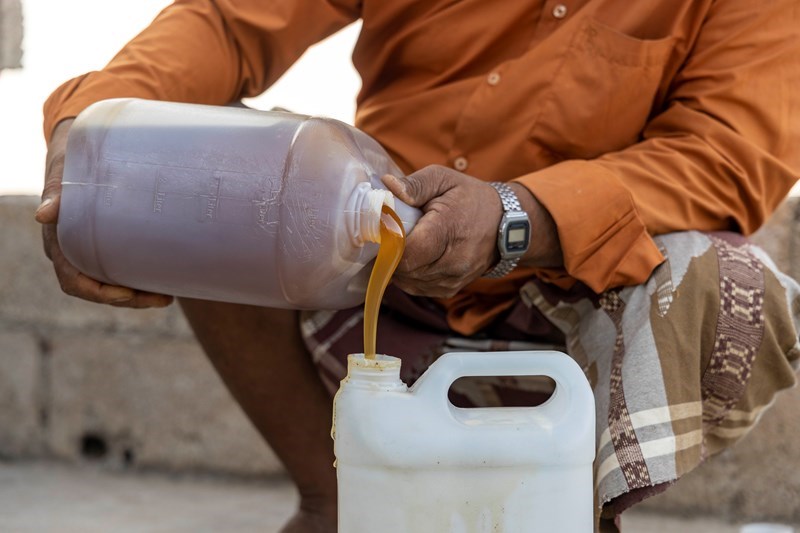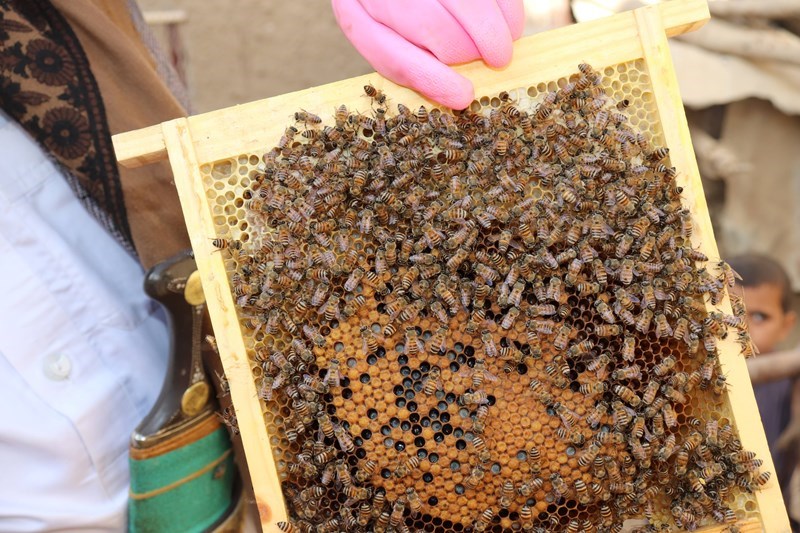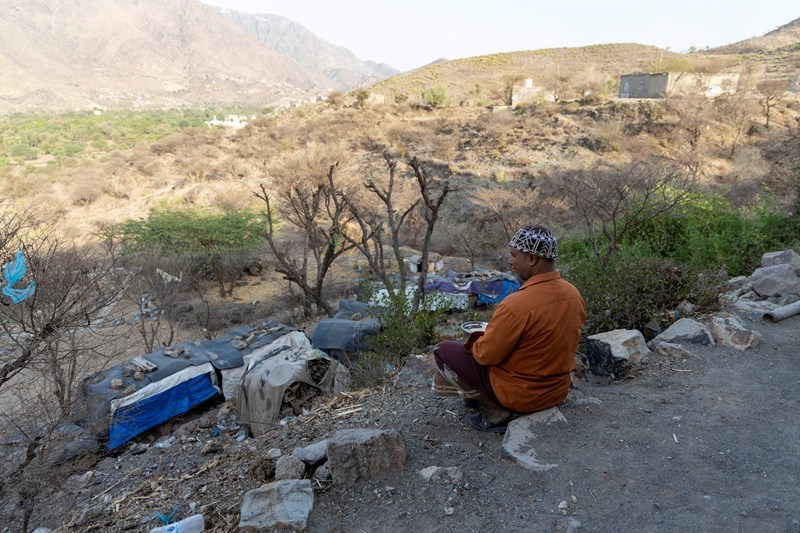There are records of beekeeping in Yemen dating back to beginning of the 1st millennium BC, and for centuries, it has been an indispensable part of economic life in Yemen, with around 100,000 households relying on honey production as their sole source of income.
The honey produced in Yemen is globally renowned for its distinctive flavour. Bees collect nectar exclusively from the flowers of the Sidr tree, which is referred to in the Quran as one of the plants of paradise.
But now this ancient practice is under threat due to the ongoing conflict: active frontlines and the widespread presence of landmines and other unexploded ordnances (UXOs) are making it too dangerous for beekeepers to move around the country to graze their bees and in some cases get their products to market.
And for those that can produce enough honey to sell, customers are few and far between because honey is now considered a luxury item for Yemen’s impoverished millions struggling to afford even basic food items after eight years of conflict.
Taiz, a mountainous governorate on Yemen’s west coast with a long history of honey production, has been badly affected by the war.
“This area has been a battlefield for eight years,” explained Amin whose bee colony was recently destroyed when it was hit by a rocket. “It was the worst day of my life,” he said. “The bees are disturbed; the business is no longer lucrative and life has gone from bad to worse.”
Youssef, a beekeeper from Hajja, an area north of the capital Sana’a, said the ongoing violence and prevalence of UXOs meant it was no longer safe to move around the country as he had done in the past.
"I'm forced to stay in my area which is also forcing me to depend on only one season of production and that is not enough to be able to support my children," he said.
Climate change is also taking its toll, reducing rainfall and raising temperatures. As water tables drop, once fertile areas are turning into dusty wastelands and the impact this has had on pollination is reducing honey yields, making it harder for farmers to earn from their bees.
"I don't only blame the conflict for what happens to us. There have not been any rains in months, and there are fewer flowers," said Amin. "My children have had to drop out of school to work in other sectors as my business is no longer enough to meet my family's needs.”










